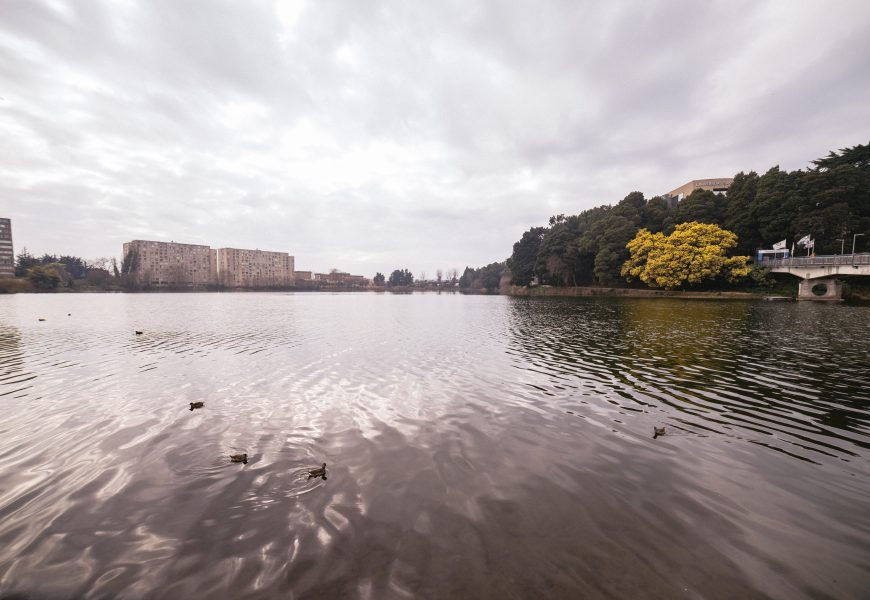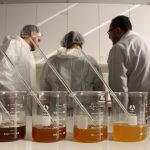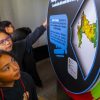Through the “City and Territory: Water Protection” report, researchers from the Center for Sustainable Urban Development (CEDEUS) and other collaborators provide background to water treatment in cities, from the approach of a critical element for the sustainability of cities
By Paulina Véjar paulivejar@udec.cl | Photo by: Courtesy CEDEUS
Cities have a unique ability to impact and be impacted by the geomorphological and cultural characteristics of the territories where they are located, and where ecosystems coexist with human activities such as mining, fishing, and agriculture, among others. Thus, their sustainability and that of the territory as a whole, impose a formidable challenge at different levels, due to the complexity of the relationships and interactions that are established. An example of this is what happens with a critical resource such as water.
The Public Policy Document: City and Territory: Water Protection prepared by Pablo Pastén, Jorge Gironás, Carlos Bonilla, Sandra Cortés, María Molinos, Alejandra Precht, Sonia Reyes, Javier Rivera, Ignacio Vargas, and Alejandra Vega, researchers from the Center for Sustainable Urban Development and other collaborators, provides relevant background information regarding water as a critical element for the sustainability of cities, to serve as a framework for the constitutional discussion on the protection of critical resources for cities and territories. It is also an information input for citizens and their organizations.
The urban and peri-urban water cycle in Chile: advances and challenges
Life in cities and communities depends on the availability of safe and sufficient water. In Chile, at the urban level, drinking water coverage is 99.9% and at the rural level, it is close to 80%. However, the physical and commercial losses of drinking water reported by sanitary companies in the last two years have remained at values close to 33%, which contrasts with the situation of water scarcity that affects many regions of the country.
“Leaks in water distribution systems mean not only the non-use of the resource for the purposes it is intended but also a deterioration in service quality. Effective control of these leaks could substantially improve supply security in the context of current and future water shortages,” added Jorge Gironás.
In addition to human consumption, drinking water is used for industrial purposes, watering gardens, and the upkeep of green areas. It has been estimated that in the irrigation of a green area of 100 m2 in Santiago, 12.8 m3 of water is used per month in summer, which is equivalent to 43% of what an average household of 5 people would consume, in the same period. In high-income sectors, a part of drinking water consumption is allocated to swimming pools, which added to the watering of extensive gardens explains why, for example, in Chicureo, per capita consumption reaches 1,120 liters per day, while, in San Pedro de la Paz, consumption barely exceeds 11 liters per day.
The document also emphasizes that the search for new sources and the reuse of water is becoming increasingly important. The reuse of grey water (referring to domestic wastewater from bathtubs, showers, laundry rooms, toilets, and others), and black water (wastewater containing excreta), requires adopting management strategies and the use of technologies.
Challenges and opportunities
Along with this document, CEDEUS has worked on the elaboration of other reports, which provide studies on different topics related to territorial development, cities, resource protection, and much more. They are put forward as an input to analyze solutions to a series of demands, in this case to the consequences of drought and water distribution. The researchers propose that water should be considered in different dimensions: at a level of principles, at an institutional level, at a level of the human right to water, at a level of the right to a healthy and ecologically balanced environment, and in the context of sustainable development.
“Universal access to drinking water and sanitation services should be a basic human right, as these resources are essential to have a decent and healthy life, eradicate poverty, and build peaceful and prosperous societies,” the researcher concluded.
More information at: www.cedeus.cl







